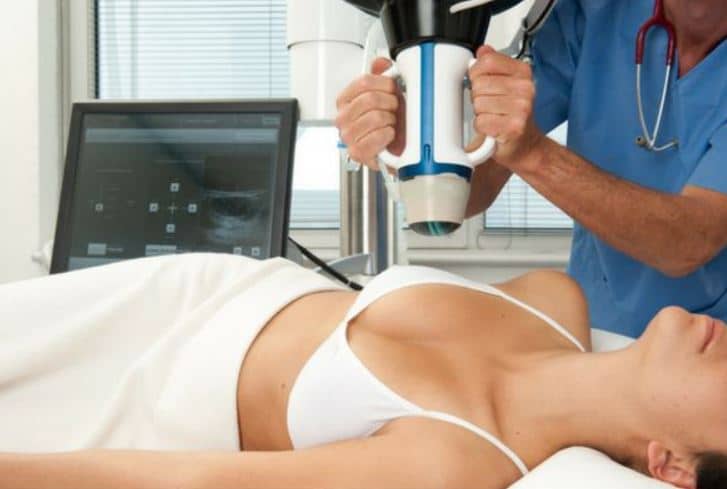Breast lumps are a common observation and include a wide variety of indications which are all summarized as lumps within a broad category. The majority of breast nodules are benign (non-cancerous), with fibroadenoma and cysts being the most commonly observed indications.
What are fibroadenoma?
Fibroadenoma are benign tumors which show as firm and solid nodules within the breast tissue. They often develop in young women and especially during puberty and become less rarely seen with increasing age. In rare cases, even men can develop those benign structures. Depending on size, the nodules can be felt as smooth structures which can be moved around under the skin. Most fibroadenoma have a size of about 1-3 cm (0,4 – 1,2 inches), although, larger lumps of more than 5 cm (2 inches) are also possible.
Symptoms of fibroadenoma
Most of the time, fibroadenoma remain asymptomatic. Depending on the size of the nodule, it might not even be possible to feel it. Nevertheless, there are cases when fibroadenoma reach very large sizes (giant or juvenile fibroadenoma), which can then cause discomfort, pain and even deformation of the breast.

What causes pain in the breast?
Breast pain is common, and most women have experienced it at least once in their lifetime. Nevertheless, the causes for pain can be manifold:
In most cases the pain is linked to the menstrual cycle and hormonal changes which impact the breast tissue. This pain usually starts about 2 weeks prior to the period and gets worse in the following days. Only after the period the pain goes away. This pain can be recognized as it is linked to the menstrual bleedings and usually affects both breasts equally.
Fibroadenoma conditions
Some conditions like cysts and fibroadenoma can cause pain in some cases which also tends to be just before the period.
Other reasons for breast pain which are not linked to periods can be injuries in the upper body like the back, shoulder or neck which can spread the pain and be felt in the breast area. Also, conditions like breast mastitis and breast abscesses can be reason for breast pain and should be discussed with a physician. Even some medications like the birth control pill and some antidepressants can have breast pain as a potential side effect (see information leaflet if suspected). Finally breast pain can also be an early sign of pregnancy.
Hormonal changes occurring during menopause can also be a possible cause of breast pain. These, however, should resolve without intervention once menopause is over.
